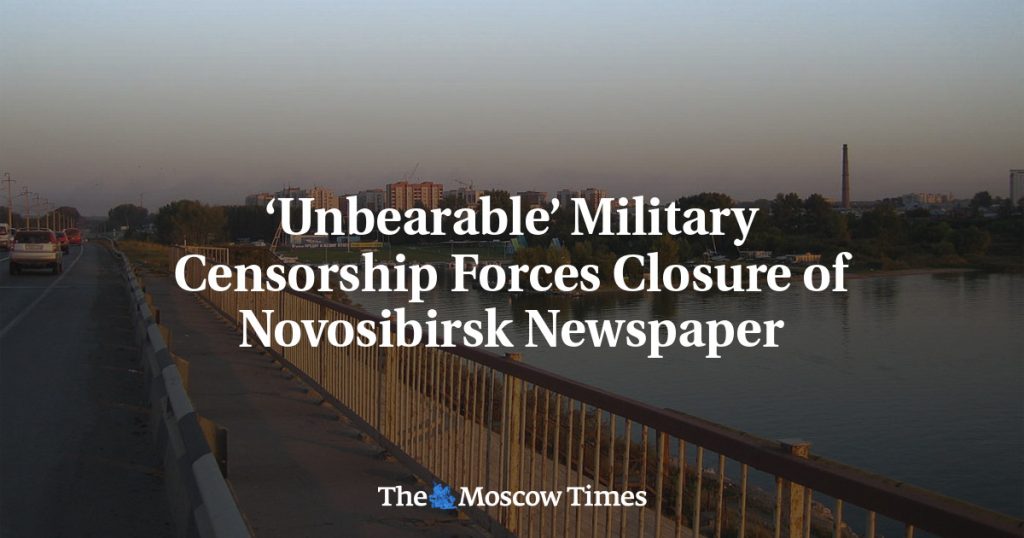Kurier.Sreda, an independent newspaper in the Novosibirsk region town of Berdsk, has announced its closure after 20 years due to what it described as “unbearable” wartime censorship. Founded in 2003, the newspaper emerged as one of the main sources of news in Berdsk, which has a population of around 100,000 people and is a suburb of the region’s capital city, Novosibirsk. Editor-in-chief Galina Komornikova wrote a farewell column expressing the challenges faced under military censorship, stating that she could not recall a single quiet month during the 25 months of living under such conditions. She criticized violations claimed by the police, the Federal Security Service (FSB), and Russia’s media watchdog Roskomnadzor.
The closure of Kurier.Sreda is reflective of the unprecedented pressure facing independent Russian media since Russia launched its full-scale invasion of Ukraine in February 2022. Remaining news outlets in the country have been hit with significant fines for publishing information that contradicts the Kremlin’s narrative of the war, and some journalists have been imprisoned. Komornikova revealed that Kurier.Sreda was forced to pay 1.5 million rubles ($16,200) in fines for failing to label foreign agents in its articles. The newspaper also received a notice from a prosecutor’s office accusing them of having the word “war” on their website, even though it had been published in 2020. The Kremlin has a strict stance on how the invasion of Ukraine is portrayed, only allowing it to be referred to as a “special military operation.”
Kurier.Sreda’s website ceased updating local news on April 1, marking the end of its 20-year run as a prominent news source in Berdsk. The closure of the newspaper highlights the challenges faced by independent media in Russia, where freedom of the press has been increasingly restricted. Despite efforts to adhere to censorship regulations and avoid fines, Kurier.Sreda ultimately found the situation to be unsustainable and decided to shut down. This move serves as a warning sign of the limitations placed on journalism in the country and the consequences faced by media outlets that do not comply with the government’s directives.
The closure of Kurier.Sreda has dealt a blow to the local community of Berdsk, which relied on the newspaper for reliable news coverage and information about events in the town. With the newspaper no longer in operation, residents are left without a key source of independent journalism that can report on local issues and hold authorities accountable. The loss of Kurier.Sreda further underscores the challenges faced by media outlets in smaller towns and regions in Russia, where independent voices are increasingly silenced or forced to close down due to government pressure and censorship.
The strained relationship between the media and the government in Russia has only intensified in recent years, with the invasion of Ukraine serving as a catalyst for increased censorship and restrictions on freedom of expression. Independent media outlets have found themselves caught in the crossfire, facing fines, harassment, and closures for attempting to report the truth and provide alternative perspectives. The closure of Kurier.Sreda is just one example of the wider crackdown on independent journalism in Russia, where the government seeks to control the narrative and suppress dissenting voices. Despite these challenges, journalists and media organizations in Russia continue to advocate for press freedom and strive to deliver accurate and unbiased reporting in a challenging environment.


